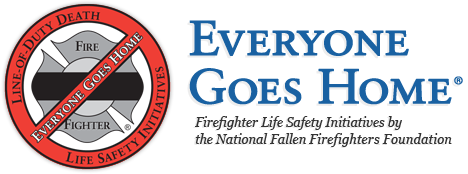» Download: PDF Version of This Article
By: Azarang (Ozzie) Mirkhah, P.E., EFO, CBO
The article titled “Fire Loss in the United States During 2005” published in the September 2006 issue of the NFPA Journal, stated “with home fire deaths still accounting for 3,030 fire deaths or 82% of all civilian deaths, fire safety initiatives targeted at the home remain the key to any reductions in the overall fire death toll.” Similarly Home Fire Sprinkler Coalition (HFSC) claims that “installing both smoke alarms and a fire sprinkler system reduces the risk of death in a fire home by 82% relative to having neither.“
Eureka! We do indeed know what and where we should be focusing on, and how to reduce 80% of our fire fatalities and decrease our fire loss! As the saying goes, this should be just as easy as “shooting fish in a barrel” then right? We see the target, we have the know how, and simple affordable life saving technologies, such as the smoke alarms and the residential fire sprinkler systems have been available for decades. But, while smoke alarms are now quite common in our households, and 96% of our homes have smoke detectors installed in them; residential fire sprinkler systems have been installed in only 2% of homes in our country.
Then the question is why? What are we waiting for? What is holding us back? Why don’t we have residential fire sprinkler systems in all newly constructed homes? Really, why don’t we put all our support behind installing such life saving technology in all our new houses nationwide?
Installation of residential fire sprinkler systems in all new homes may not have an impact on the fire loss in all of the existing homes throughout the country. But, then it would definitely have a long-term positive impact on the 1.5 million new homes constructed around the country every single year. And if we don’t address this problem now, these new homes of today will be where we will be fighting the fires of tomorrow, and where we will be collecting our future fire fatalities and loss statistics.
It is precisely from this angle, that we in the fire service must participate in full force and with all our might in the code development process established by the International Code Council (ICC), and take the long overdue historical measure to revise their 2009 edition of the International Residential Code (IRC), to require installation of residential fire sprinkler systems in all new homes.
ICC has scheduled their Final Action Hearing for May 21-26, 2007, in Rochester, New York. The residential fire sprinkler requirement is on the agenda as Item RB114, and is scheduled to be debated starting at 11:00 a.m., on Tuesday, May 22, 2007.
In the ICC process, anyone can debate the merits of a proposed code change, but only the governmental members of the ICC can vote. Thus, it is of utmost importance for the fire service members of the ICC to attend this Final Action Hearing. Every single vote is important, because, to pass, this recommendation will require support by a two-thirds majority of the voting governmental members present at the meeting.
Just like anything else in our democratic ways in America, change will only come about through mass participation in the established process. On May, 22, 2007, by participating in the ICC Final Action Hearing in Rochester, NY, we in the fire service will have a unique opportunity to take a monumental step in addressing the root of the fire problem in our Country, the dwelling fires. To succeed, we must face the opposition; not splintered, but unified. It is time for the fire service to stand up and be accounted for.
» Related: Fire Loss in the United States During 2005 (Full Report)
» Related: Home Fire Sprinkler Coalition


